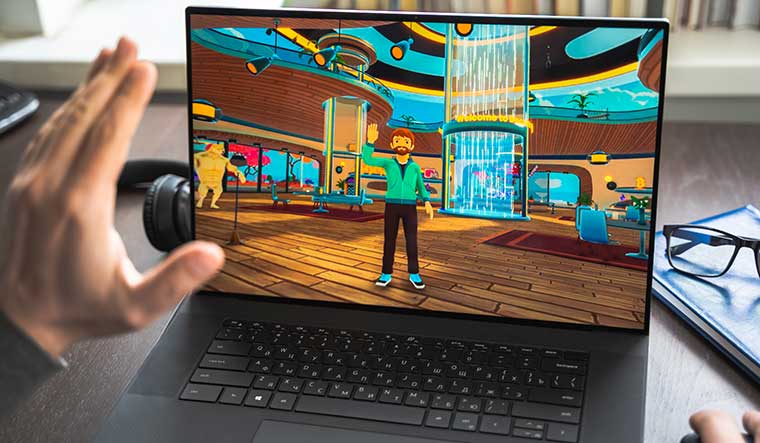For a game that can be played on your browser, Decentraland is surprisingly pretty—albeit a little laggy. You may have heard of Decentraland as the place where virtual plots of land can be sold for millions of dollars. In November, a 6,000-square-foot fashion estate sold for $2.4 million.
By lingering in a casino, I start earning “free” poker chips, which I can use to gamble cryptocurrencies in poker. “Decentral Games is currently in Beta, use at your own risk”, warns a disclaimer that appears at the bottom of the screen.
As you roam around this “metaverse”, you find a myriad of avenues to “earn” cryptocurrencies. Many of these are gambling, but a few include fighting monsters to earn tokens, or waiting around for a “drop”. One abbreviation pops up a lot: P2E—“play to earn”.
P2E and metaverse are two of 2021’s big buzzwords. As crypto-evangelists the world over preach the gospel of the blockchain, the global gaming community—estimated by some to number about three billion strong—is seen as a potential tsunami of crypto-adopters. Games that reward players with crypto are called P2E.
But Decentraland itself is an oddly empty experience. To make anything happen requires spending real money, in crypto. But, the real fun is off-game: In multi-million dollar deals.
For decades now, skilled gamers have been able to make careers out of gaming. And, there have always been games that reward players who spend long hours playing them. Team Fortress 2 and Counter Strike: Global Offensive would give players in-game items like hats at random. These could be exchanged for real money off-game, albeit illicitly and on platforms you could not really trust.
With the advent of non-fungible tokens (NFTs), developers now have a way of offering a digital certificate of ownership for an in-game item and making them tradable anywhere. Players already liked buying items (the microtransactions market in 2021 was worth $34.6 billion) so why not add some to make them NFTs? That appears to have been the thinking at Ubisoft, which launched a series of NFTs for Ghost Recon Breakpoint.
With so much hype, it was sure to succeed, right? Wrong. Barely anybody bought them.
P2E is facing growing pangs. Games that focus on making players grind to earn crypto have proven more popular in developing countries, where many treat these as jobs. They are not fun—games like Axie Infinity even let you hire others to play for you. If a game is dull enough that you would have to pay someone else to play it, is it still a game?
However, there may be fun P2E games. Coin Hunt World makes you walk around the real world to find in-game items and rewards you with cryptocurrencies. The graphics in the real-world are pretty good, after all.


